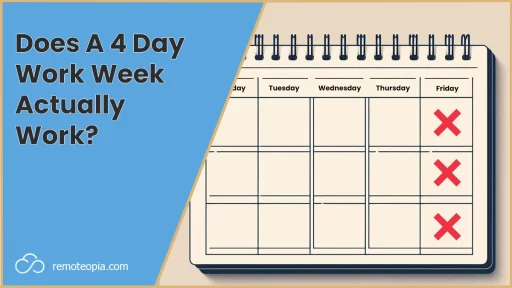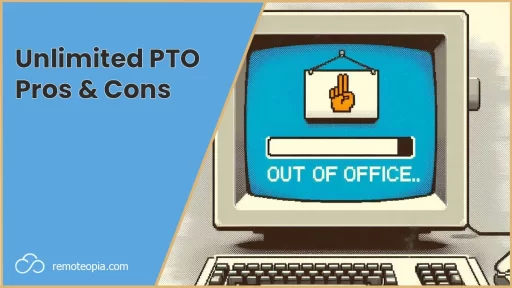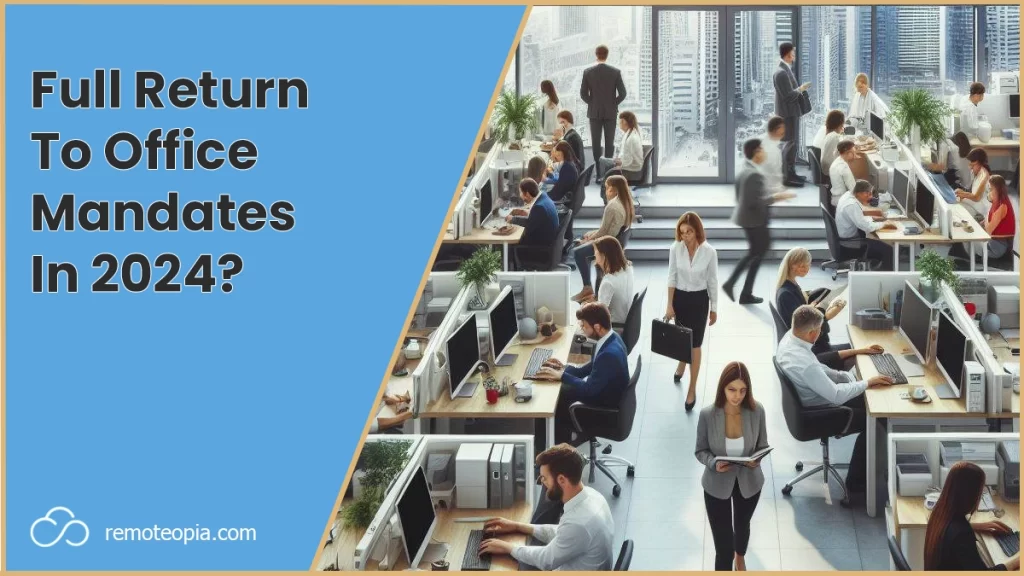
It’s now been 4 years since the Covid 19 pandemic started.
Now that the dust has settled, we as the remote work community, both workers and employers included, have a question to answer.
What does the future of remote work look like?
We’re at a crossroads as to where we go next.
And the most interesting part?
Employees and employers are not on the same page when it comes to where we should be spending our working hours.
Employees vs Employers
76% of employees say they would seek new roles if their employer got rid of flexible work (Greenhouse).
Whilst 64% (KPMG CEO Outlook survey) of CEOs are predicting a full return to the office by 2026.
Most companies could, if they wanted to mandate a return to the office for anyone not on a remote contract.
But, if this is going to deter 3/4s of employees from working for a business, then there has to surely be some compromise to maintain harmonious employee, employer relations.
Current Stance Of Employers
A lot of businesses and CEOs clearly prefer a return to the office.
Many going as far to say (87% of global leaders) that:
Financial rewards and promotion opportunities could be linked in future to office attendance.
This is a huge statement, linking career progression to office attendance.
This seems like more of an empty threat than something that would be implemented.
Even if it was, its impact on promotions would be minimal.
What if all of your under-performers started showing up under the guise of career progression.
Talented employees know their worth and employers know that the most skilled people in their industry command more than a high salary in this day and age.
Work-life balance is a crucial offering in any negotiation nowadays as the pandemic accelerated the realization that a lot of jobs could be easily done from home.
This may be coming to light from detail in a recent article on the limited success of 2024 return to office requirements for some businesses, as discussed by CNBC:
Many companies are finding enforcement has no teeth given that there’s a critical mass of people flouting the policy — and many of them are productive workers.
Power in numbers is definitely prevailing here.
Smart businesses could potentially look to use remote work offerings as a lever to acquire talent from competitors.
With what the BBC calls Executive Hubris – these return to office mandates could drastically backfire on over zealous CEOs.
The article from the BBC goes on to mention:
Years of post-pandemic data has shown remote and hybrid work works. Researchers have found employees retain productivity and can help companies drive profits.
To go a step further, the return to work policies of some companies could be at odds with their own diversity and inclusion initiatives, as fastcompany points out.
For neurodivergent people, remote work provides an opportunity to work in a familiar, comfortable space, and limits distractions so they can more easily focus on their work. For people with physical disabilities, working from home means they don’t need to commute to an office. For caregivers, who are disproportionately women, remote work allows for a better work-life balance amidst the emotional and physical tolls of providing care for loved ones.
Current Stance Of Employees
From the employee standpoint, the current remote working arrangements (amongst 200,000 observations) for full time employees shows a split of 30.2% fully on site, 57% hybrid, 12% fully remote.
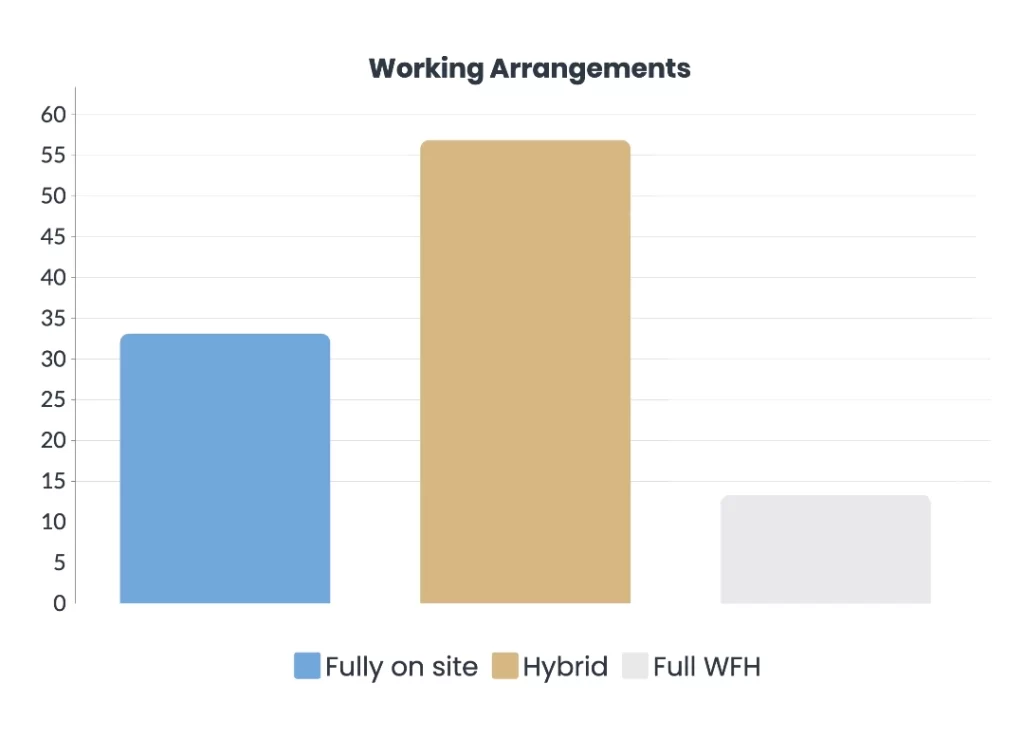
Perhaps we’re close to or already at where we need to be to have harmony between employees and employers.
With 87% of workers having some in office time as it stands and sentiment being favorable. It appears that it’s the employers that are the ones pushing for a change in the status quo.
Some of the most popular reasons that staff enjoy working in a remote environment include, flexible scheduling, no commute and saving money.
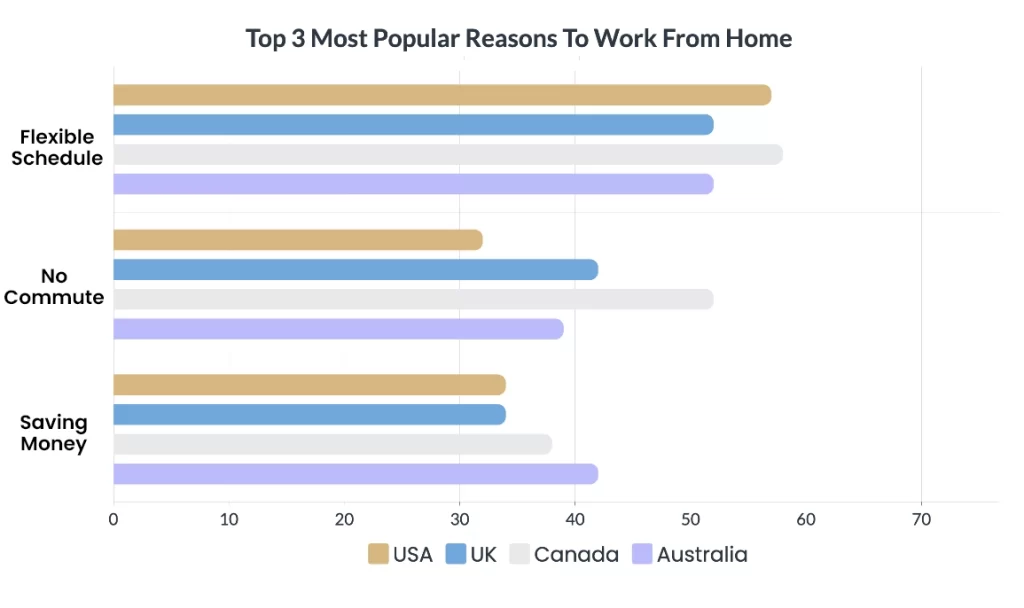
94% of employees report the same or higher productivity working from home (Zippia).
If the figures are accurate – you could gradually paint a picture of what’s at play here from the CEO/business side via a process of elimination.
Perhaps there’s some governmental pressure on businesses to encourage more of a return to the office to inject the economies of major cities to help make up for losses.
With transport, retail, food and beverage and real estate being the residual benefactors of more city wide footfall, an economic argument could be a big justification in this move.
According to analysts at Morgan Stanley the current city real estate market is currently expected to experience turbulance “worse than in the Great Financial Crisis.”
Is that most workers’ problem? Not at all
The people that care about these issues have undoubted influence over corporate powers.
We might be in a power play game of David & Goliath, with the office worker pitted against the big players in conglomerate dominated sectors, that pre Covid, bloomed under busy offices, packed commuted trains and bustling bars and restaurants.
Return To Office Vs Hybrid Working
For most, I think hybrid working will be the future with a predominant amount of the workforce working a 3:2 office to remote or 2:3 office to remote model.
I currently work a 1:4 office to remote model which suits me to a tee. I’d be happy to go to 2:3.
This is a fair compromise that blends the best of both worlds.
My current company has implemented office tracking of late too. I think this could also play a big part in how new hybrid models are implemented. Especially in bigger companies where it’s harder to keep track of who’s in and who isn’t.
Return To Office Conclusion
The power of the collective workforce and the acceleration in changing work preferences and behaviours during the pandemic has put a stake firmly in the ground for what it means to be a worker in today’s age.
Although there’s wiggle room. I don’t see companies unanimously being able to mandate a full return to the office under most circumstances.

James Waite
Founder of Remoteopia, James has worked in remote roles for 6 years. After a stint in recruitment, he now works as a director of website strategy in tech.


